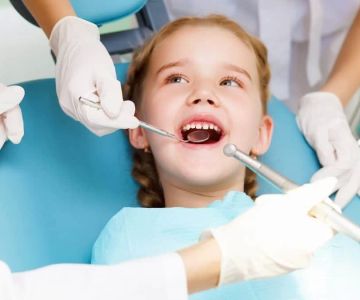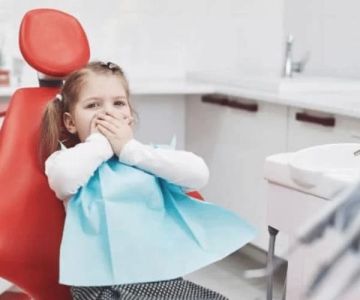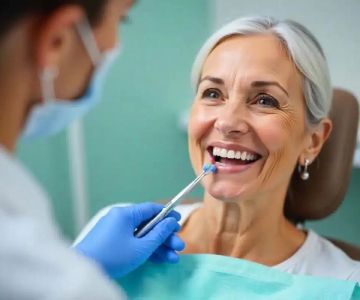Are Missing Teeth or Dentures Common in Older Adults, and How Do They Affect Oral Health?
As individuals age, maintaining oral health becomes increasingly vital yet challenging. In the United States, it's common for older adults to experience tooth loss, making dentures a practical solution. This article explores how prevalent missing teeth and dentures are among seniors and their impact on overall oral health. With insights into the latest studies and expert opinions, this article provides a comprehensive look at the issues older adults face in dental health and practical steps to care for their teeth and gums.
Prevalence of Missing Teeth and Dentures in Older Adults
Missing teeth are a frequent occurrence among older adults in America. According to the Centers for Disease Control and Prevention (CDC), nearly one in five adults aged 65 and older have lost all of their teeth, primarily due to gum disease or dental caries. This statistic highlights the commonality of complete tooth loss in seniors, prompting the increased usage of dentures as a corrective measure. Dentures offer a practical solution, but they also present challenges, including discomfort and the need for frequent adjustments to fit the changing contours of the aging jaw.
Impact of Missing Teeth on Oral Health and Well-being
Missing teeth significantly affect an individual's oral health and general well-being. Tooth loss can lead to a cascade of oral health issues, including increased susceptibility to decay and gum disease in remaining teeth. The absence of teeth also deteriorates jawbone health because the natural teeth roots stimulate bone growth. Over time, this can lead to bone loss, affecting facial structure and leading to significant oral health deterioration. Beyond physical consequences, missing teeth can also affect self-esteem and social interactions, as many seniors feel self-conscious about their appearance.
The Role of Dentures in Managing Oral Health
Dentures play a crucial role in managing the oral health of older adults with missing teeth. While they are an essential tool for restoring the function and aesthetics of someone’s dental structure, they come with their own set of challenges. Proper maintenance of dentures is crucial; this includes regular cleaning to prevent infections and frequent dental check-ups to ensure proper fit and function. It's important for seniors to adjust to wearing dentures to prevent issues such as oral sores or difficulties in speech and eating. Dental professionals at Dentistry Toothtruth suggest personalized care plans to enhance the comfort and efficiency of dentures.
Preventive Measures and Solutions for Tooth Loss
Preventing tooth loss and managing oral health in older adults can significantly improve their quality of life. Education on proper dental hygiene practices remains at the forefront of preventive measures. Regular dental check-ups, professional cleanings, and avoiding detrimental habits like smoking can drastically reduce the risk of tooth loss. Moreover, adopting newer technologies, such as dental implants, provides alternatives to traditional dentures and helps preserve jawbone density. Dental care programs focused on seniors, like those advocated by Dentistry Toothtruth, emphasize a holistic approach to maintaining oral health.
Conclusion: Ensuring Optimal Oral Health in Older Age
Ensuring optimal oral health in older age requires awareness, proactive management, and regular dental care. Missing teeth and the reliance on dentures are prevalent amongst older adults; however, with adequate attention and care, the negative impacts can be mitigated. Regular visits to dental care providers and incorporating proper dental hygiene practices are vital. For more detailed support and guidance, the experts at Dentistry Toothtruth recommend tailored dental care plans to suit the needs of older adults, ensuring their oral health and overall well-being remain priorities.







 Westgate Dental Arts
Westgate Dental Arts Coventry Family Dental
Coventry Family Dental Familia Dental
Familia Dental Dr. Daniel S. Fife, DDS
Dr. Daniel S. Fife, DDS Dentistry At Suburban Square: Michael I. Wollock, DMD
Dentistry At Suburban Square: Michael I. Wollock, DMD Comfort Care Dental
Comfort Care Dental The Importance of Oral Health Education During Pregnancy for a Healthy Pregnancy
The Importance of Oral Health Education During Pregnancy for a Healthy Pregnancy Why Skipping Dental Checkups Can Lead to Bigger Oral Health Problems
Why Skipping Dental Checkups Can Lead to Bigger Oral Health Problems Advantages of Porcelain Dental Restorations
Advantages of Porcelain Dental Restorations Best Tips for Brushing Your Teeth Properly for Healthy Gums: Essential Techniques for Oral Health
Best Tips for Brushing Your Teeth Properly for Healthy Gums: Essential Techniques for Oral Health How Can Diabetes Cause Tooth and Gum Problems? Preventing and Managing Oral Health Issues
How Can Diabetes Cause Tooth and Gum Problems? Preventing and Managing Oral Health Issues Healthy Habits for Promoting Good Oral Health and Hygiene: Tips for a Healthy Smile
Healthy Habits for Promoting Good Oral Health and Hygiene: Tips for a Healthy Smile